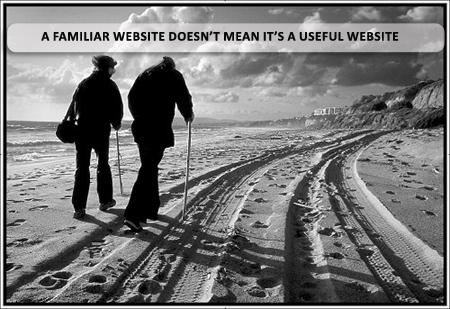
First some quick definitions:
The definition of Nebulous according to Dictionary.com is hazy, vague, indistinct, or confused
Shelf life is the recommendation of time that products can be stored, during which the defined quality of a specified proportion of the goods remains acceptable under expected (or specified) conditions of distribution, storage and display
Depreciation is an expense that reduces the value of an asset as a result of wear and tear, or age. Most assets lose their value over time and must be replaced once the end of their useful life is reached.
Obsolescence is the state of being which occurs when an object, service or practice is no longer wanted even though it may still be in good working order.
Now what if we applied these to the world of social media?
My friend Danny recently sold his Boston Whaler. It was a boat no more than 2 years old and it was in pristine condition. He lost $5,000 on the transaction. His take? The boat depreciated as soon as he bought it. It was cool when he first had it he said, but after awhile, once the “newness” of it had worn off-it then was just an old boat that took up space.
Semi-truth #1: Our infatuation with the next, new, shiny, thing in social media depreciates as soon as we realize that it’s just another engagement, aggregator, application, thingy requiring more time, increased effort, permission to access, another profile creation etc., etc. and yet at the end of the day, delivers not much more than all the others. It’s like Danny’s boat.
——————–
Mike, a friend and a CEO of a cool little boutique ad agency, used to use Twitter, but then claimed that it was too nebulous. (Note I quickly had to run and look up the word nebulous)
His agency has never been doing better, and yet just because he doesn’t use Twitter any longer, doesn’t mean that he doesn’t think it has value for him or his clients. To him, Twitter is what Twitter is- But the basic tenets of good business like customer service and doing the job right, go further for him than “some web app” that takes up too much of his precious client time. fair enough.
Semi-truth #2: The majority of social media applications can indeed be nebulous and though they may have the best of intentions with a cool interface-at the end of the day, they remain nebulous at best with a typical “make money via advertising” as it’s business model, and a primary marketing approach that is dependent on social “coolness” and going viral. Great news! Whether you use social media or not is not going to determine your success in business.
——————–
Remember MySpace? I honestly can’t think of a better definition of social media obsolescence, though there are many to go around. Yes they have had “some UI issues”, but at one point they were THE social network that everyone was talking about. What happened? It still worked and yet people just didn’t or don’t want to use it anymore. The coolness wore off.
Semi-truth #3: What happened to MySpace can happen to any social network. At any point in time, if something better comes along, or if people just get bored with what you are offering, they will leave, and there is really nothing you can do to prevent that, even if it “ain’t broke.”
———————
Some of your social relationships are platform dependent and might not last as long as you think. What is the useful shelf life of a social media generated relationship? What is the sweet spot for a “social relationship” before it plummets into the trough of disillusionment? How long does it last? 6 months? 1 year? Think Dunbar.
Semi-truth #4: Similar to the the shelf life of social networks, some relationships in social media, though timeless, can be generally shallow and only last as long as both continue to use the application that bridged the engagement in the first place. If one departs, in general the surface like relationship ends. Thus the shelf life of social relationships is inversely proportional to a) Depth of engagement b) Type of platform and c) One got what one needed.
——————-
Isn’t it interesting how shelf life, obsolescence, depreciation and nebulous can be so closely linked and aligned to the world of social media? It’s partly what makes social media great on the one hand, and so maddening on the other. It moves at the speed of sound and yet it’s innate fickleness is determined primarily by it’s makers and it’s users and not much else. Yes new technology may change behavior, but behavior can change or determine the path of technology.










